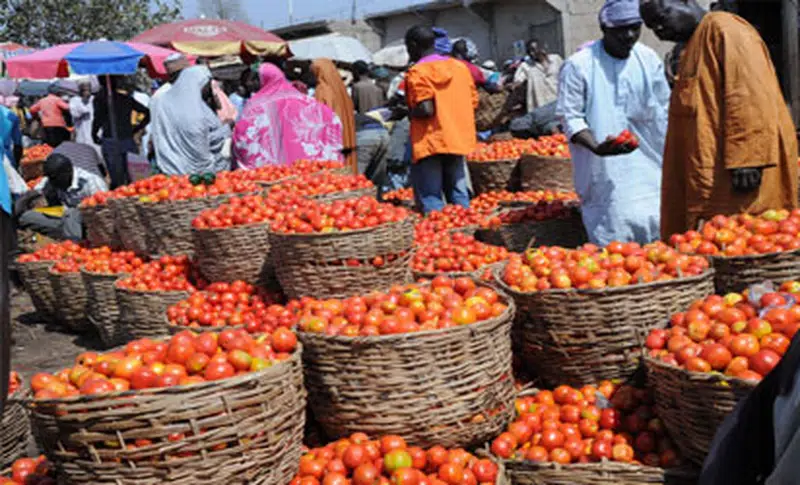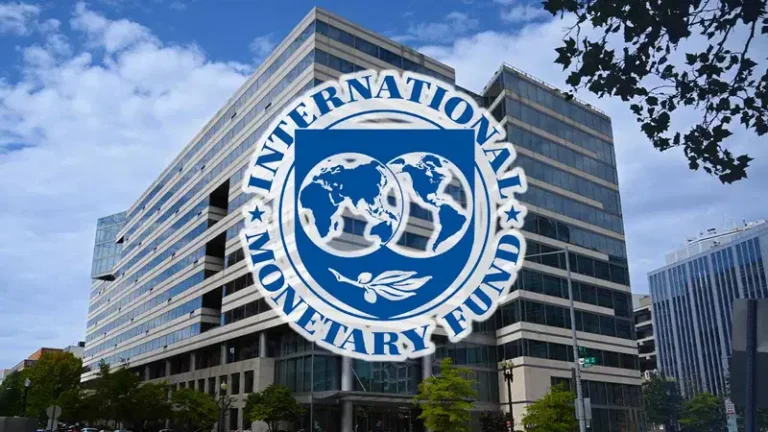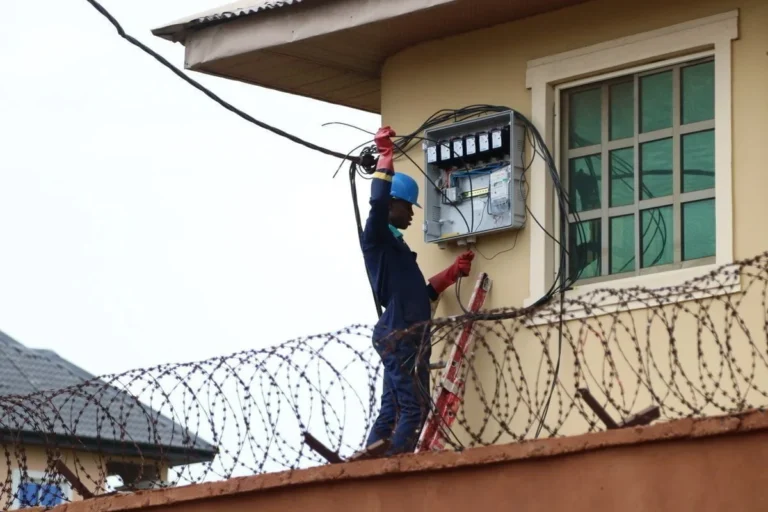
As food prices remain unabated, tomato scarcity and high high prices have hit Nigerians below the belt, therefore compounding their woes and made them groan.
A civil servant in Abuja, simply called Bolanle said following preparation for her daughter’s marriage ceremony, she bought a big basket of tomato in one of the markets in Abuja at N90,000, while the price in Delta State for the same basket goes for N100,000.
Recently tomato farmers made huge losses following invasion of caterpillar insects invasion on large tomato farms in Kano State, which farmers were adversely devastated.
The Chairman, M.K. Kura Farms, Butalawa, Kura Local Government Area, Kano State, Mukhtar Kura, disclosed in a chat with Vanguard that tomato farmers are reeling in pain over the unexpected invasion of the insects.
According to Kura, the farmers had similar experience in 2023 at the same time and made a loss of N1.5 billion, and the insects did the damage within 24 hours in two Local Government Areas of Kano State, which are Bagwai and Dawakin Tofa.
On the current high prices of tomato in the market, he said, “Most of the farmers have cultivated their tomatoes, and are planning on planting something different.”
Meanwhile, in a chat with Vanguard, a tomato production expert and Chief Executive Officer, CEO, EA Daniels Farm, Sapele, Delta State, Engr Daniel Ijeh, said there are strategies that would serve as intervention to address the high cost of tomatoes in Nigeria.
According to Ijeh, the root cause of high prices of tomato is traceable to a significant reduction in tomatoes yields.
He said: “In recent months, our nation has experienced an unprecedented shortage in the supply of tomatoes, a staple in our daily diet.
“This shortage has led to a dramatic and unbearable increase in prices, straining household budgets and impacting various sectors of our economy from small eateries to restaurants.
“The root cause of this crisis is a significant reduction in tomatoes yields, even zero yield in many instances, attributed to a severe heat wave that struck the country from January to April this year.”
He further explained that, “The impact of the heat wave on tomato yield is devastating to many farmers across the country. The heat wave, with temperatures and humidity soaring beyond the optimal range for tomato cultivation, has wrecked havoc many farms.
“Tomatoes, known for their sensitivity to high temperatures, suffered extensively during this period. The excessive heat caused poor establishment and development, flower drop, poor fruit set, reduce immunity to disease, and in many cases, complete crop failure.
“Farmers across the country faced the devastating reality of low to zero yield, unable to recover their investments and meet the market demand.
“The immediate economic impact of this shortage has been felt nationwide. Retail prices of tomatoes have skyrocketed, making them unaffordable for many families, even when the worse is yet to come.
“This inflationary pressure is not confined to households alone; it extends to restaurants and small eateries. The trickle down effect has further exacerbated the economic strain on our already vulnerable economy.”
However, some of the strategies as relief and solution to the high prices of tomato, he (Ijeh) said include; Facilitation of importation: To alleviate the immediate shortage, the government should consider facilitating the importation of tomatoes from other countries. Ensuring a smooth and fair distribution process can help stabilize prices and make tomatoes more accessible to the general public.
“Subsidies and Support for Farmers: Providing financial aid and subsidies to affected farmers can help them recover from their losses and prepare for the next planting season. This support could include low-interest loans and introduction of heat-resistant tomato varieties.
“Long-term solutions for resilience are: Climate-resilient agriculture; Improved agricultural practices: This is already spreading in the south; and early warning systems and weather forecasting.”
He also called on the Government and stakeholders to urgently put in place a comprehensive strategy to address the vulnerabilities in the agricultural sector to climate change.
“By implementing immediate relief measures and investing in long-term resilience, we can not only recover from the current shortage but also build a more robust and sustainable agricultural system.
“It is imperative for the government, private sector, and civil society to work together to ensure that such crises are averted in the future, safeguarding the livelihoods of our farmers and the well-being of our nation.
“By addressing the tomato shortage through both immediate and long-term strategies, we can mitigate the current crisis and build a more resilient agricultural sector capable of withstanding future climate challenges. This is called climate proof agriculture”, he added.


